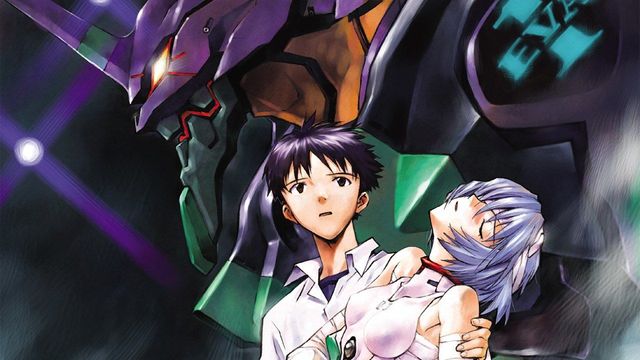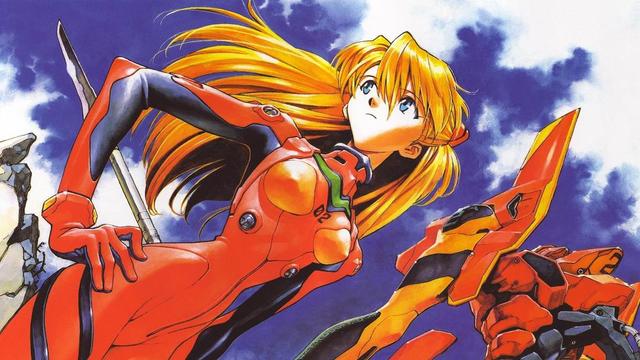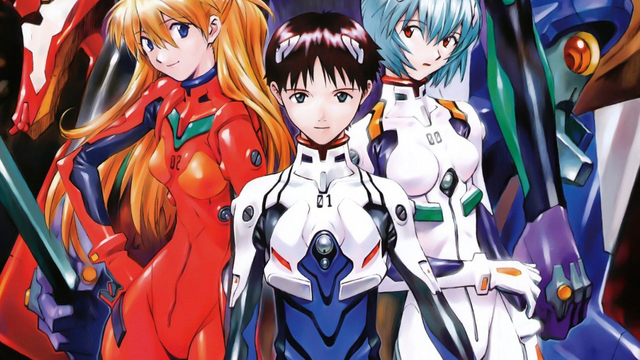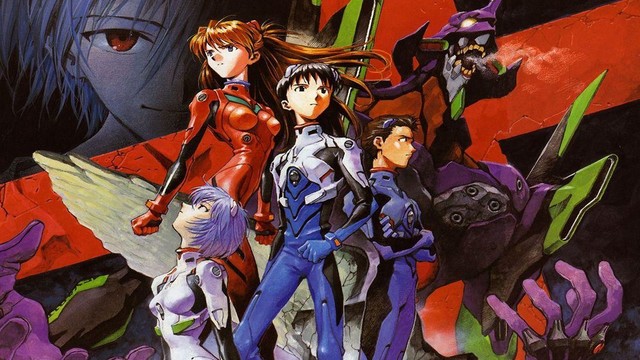Neon Genesis Evangelion‘s influence on anime can’t be understated. The show changed global perception of the medium with its unique take on the mecha genre in 1995, forcing animators everywhere to rethink how they approached their craft. The fact that the series continues to spark long-winded analyses today is a testament to how well-thought out and rife with detail it is. With the recent Neon Genesis Evangelion Netflix “takeover” currently happening, the following illustrates why the anime is worth rewatching and why newcomers should give it a shot.
Neon Genesis Evangelion is psychologically complex

Nearly every character in Neon Genesis Evangelion can be psychoanalyzed. Protagonist Shinji struggles with social anxiety and women because of the absence of parental figures in his life. Asuka uses her role as Unit 02’s pilot as a means of distracting herself from the pain her mother inflicted on her as a child. Misato is attracted to Ryoji because he reminds her of her father, and Ritsuko is attracted to Gendo after she witnesses her mother having an affair with him as a child. While each character can be written off as fulfilling an anime trope (Asuka is the tsundere, Rei is the cold one, and Misato is the comic relief), there’s no mistaking the empathy one feels toward everyone as the series reaches its conclusion.
It’s impossible not to notice how the show serves as an allegory for creator Hideaki Anno’s lifelong struggle with depression, as Shinji, Asuka, and Rei all desperately look for an escape from themselves. The episode titles themselves play into this idea of searching for oneself, as many are named after such popular Freudian terms as the oral stage, separation anxiety, and the Oedipus complex. Because the word “worthless” is spoken a lot by Evangelion‘s cast, newcomers are advised to approach the show with a healthy state of mind.
Neon Genesis Evangelion is unapologetic

Evangelion pulls no punches in its depiction of humanity’s fight with the Angels. The screams that some these threats make whenever they’re murdered are traumatizing. Conversely, a pilot’s failure in battle is usually accompanied with plenty of gore. Revelations toward the end of the series change one’s view of the seemingly traditional mecha narrative on display and call into question humanity’s motivation to gain independence from the ethereal forces that govern it. The religious connotations are hard to ignore, especially considering how some Angels are named after important figures in Christianity’s Old Testament, like Adam and Lilith. That’s not to mention the crosses that appear whenever one of these foes is eliminated.
The show pushes the envelope further with its characters and their respective ids. Interactions between Shinji and Asuka highlight their struggle with adolescence and can be painfully disturbing at times, especially in End of Evangelion (the opening hospital scene is especially hard to forget). Some adult characters resort to sex in order to express their feelings and the show’s illustration of sexual gratification can make audiences squirm in their seats. Psychology aside, one important character’s only source of happiness is knowing she’ll die one day. If this alone doesn’t evidence how apologetically brutal Evangelion is, nothing else will.
Neon Genesis Evangelion takes risks

It’s clear that Evangelion is a bit of an experiment for Anno and his team, especially when approached from a narrative and thematic perspective. Though the Angels evoke rebellion, the religious symbols associated with them can sometimes appear to be insincere. Similarly, it’s hard to figure out what the moral of the story is, as its conclusion leaves a lot of questions unanswered. Newcomers expecting to see Shinji, Asuka, or any other of the show’s characters redeem themselves by the time the credits roll will be disappointed.
Evangelion‘s philosophic undertones are be interpreted as both meaningful and haphazard. Existentialists may be able to recognize episode 16’s title, “In Sickness Unto Death,” as a direct reference to Søren Kierkegaard’s book of the same name, the likes of which details the philosopher’s interpretation of despair. The show references another philosopher, Arthur Schopenhauer, and his observations on male and female interaction with its fourth episode, “The Hedgehog Dilemma.” Rather than having a philosophical focus, Evangelion picks and chooses the messages it wants to convey. Some fans may find this confusing while others may think it’s brilliant.
Despite inconsistencies, it’s impossible to not appreciate how the production crew made due with the limited resources available to them. The show’s finale completely throws the precedent established by prior episodes out the window in favor of deep introspection through line drawings, still images, and floating text. When it comes to End of Evangelion, Anno once again chooses to focus on examining the human psyche rather than showering audiences with flashy animations and spectacular fight scenes. In the case of both the series and its films, dread and wonder simultaneously linger with audiences long after the final scene fades from view.
The Neon Genesis Evangelion Netflix debut is cause for celebration, as the show and its sequel films were distributed outside Japan in DVD format years ago. Anyone who wanted to watch the show legally would have to either buy the old DVDs online or import the expensive Blu-ray set.
Since there’s no telling when the show will leave the platform, fans and newcomers should do their best to experience it sooner rather than later. It’s an excellent refresher for next year’s fourth Rebuild film, Evangelion: 3.0+1.0, which hopefully gives the franchise the sendoff it deserves. If it’s half as profound as End of Evangelion, the anime community will be talking about it for decades to come.







